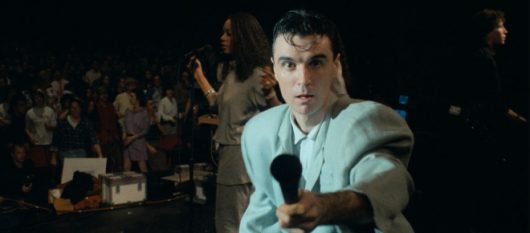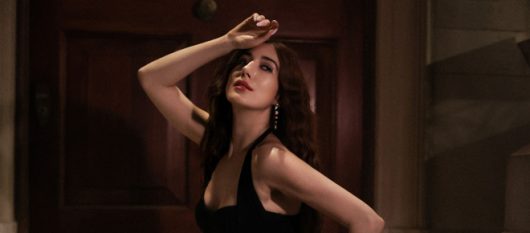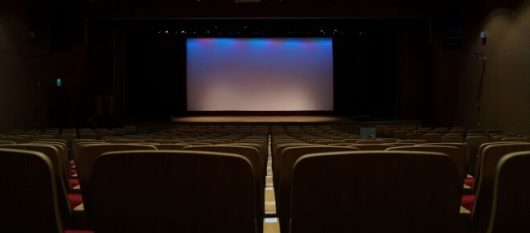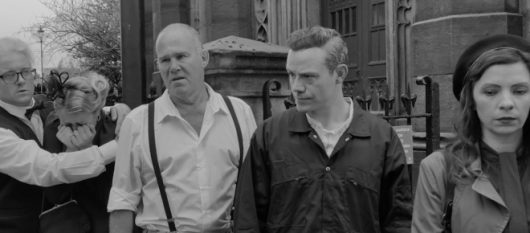
Film
A Film is a story or event recorded by a camera as a set of moving images and shown in a cinema or on television.
The term film is used today to describe two things: a thin flexible strip of plastic or other material coated with light-sensitive emulsion for exposure in a camera used to produce photographs or motion as well as a story or event recorded by a camera.
The term film was first used in the 1890s with the invention of the first motion picture cameras alongside the establishment of the first film production companies and cinemas. The first films to be made lasted on average a minute, in black and white and contained no sound until 1927 when sound was incorporated into motion pictures. The history of film began in the 1890s, with the invention of the first motion-picture cameras and the establishment of the first film production companies and cinemas.
In 1872, a man named Eadweard Muybridge began experimenting on how to capture moving images. His first experiment included 12 cameras placed on a racing track and attached thread to the camera's shutter. As the racehorse ran past its legs broke the thread causing the cameras to operate in sequence. The result was 12 images of a horse's gait. He used a previous invention named the Zoopraxiscope to project the images creating what we know as motion photography.
Two men named George Eastman and William H. Walker created the very first reel of film in 1885. Film was sensitized paper created with a gelatin emulsion. One year later it was replaced by a synthetic plastic material called celluloid, which was invented in the 1870's used in the chemical compound cellulose nitrate.
Two more film related devices were invented and with the invention of the Cinematographe, more and more people were rushing to create the next big invention, which could surpass what had been created so far in the history of film.
The transition of film into the 1900's was stimulated by the increasing competition among the many inventors. Film was easy to reproduce and many used propaganda in cinemas. Film was overall extremely appealing to most growing cities.
In 1891, Thomas Edison invented the Kinetograph and the Kinetoscope. On 22 March 1895, the Lumières held their first screening in Paris. It was the birth of a new medium; the Cinema. In 1928 the silent film had reached its artistic peak. Most importantly, it was then when Cinema became equal to other forms of arts, such as painting and photography. Philosophers, thinkers, academics, and scholars began to analyze the movies and find in them artistic values. Significant people, such as André Bazin, François Truffaut, Gilles Deleuze, and David Bordwell, praised the importance of cinema as an artistic medium.
The classic film theorists considered the seventh art as a visual medium. However, when the first sound movie. "The Jazz Singer" arrived on 1927, everything changed. Studios in Los Angeles realized the 'gold mine' and filmmakers began to produce masterpieces. In other words, it was the Golden Age of Hollywood. It was the period when Alfred Hitchcock, Robert Aldrich, Victor Fleming, John Ford, Frank Capra, Howard Hawks, and many others gave us maybe the best movies ever.
Between 1917 and the early 1960s, the hegemony of the American movies was undeniable. Nevertheless, three European countries not only threatened the American domination, but they achieved to shape the medium. After two wars, Europe was trying to find a lost identity. Through poverty and ruins, some Italians filmmakers shook the world with their movies and created a huge wave known as; The Italian Neorealism. Directors, such as Roberto Rossellini, Vittorio De Sica, and Luchino Visconti, through their camera, preceded to change cinema, using non-professional actors and highlighting the results after the war and the cultural changes.
In 1948 Alexandre Astruc's manifesto "The Birth of a New Avant-Garde: The Camera-Stylo" was published. That was the beginning of what we know today as the French New Wave or La Nouvelle Vague. Filmmakers such as Jean-Luc Godard, François Truffaut, Éric Rohmer, Claude Chabrol, and Agnès Varda, demolished the typical narration, recreate the concept of cinema. Society and politics were in the spotlight, while through their experiments on editing and other filming techniques, they created the cinema as we know it today.
Great Britain eventually took the baton between 1959 and 1963. British filmmakers introduced us to the 'angry young men' through the British New Wave Cinema. The main theme of their movies involved the struggles of the working class that were often low budget with big importance. This included the work of directors such as Tony Richardson, Jack Clayton, and John Schlesinger, still influencing the contemporary cinema.
Who follows the Film channel?



































